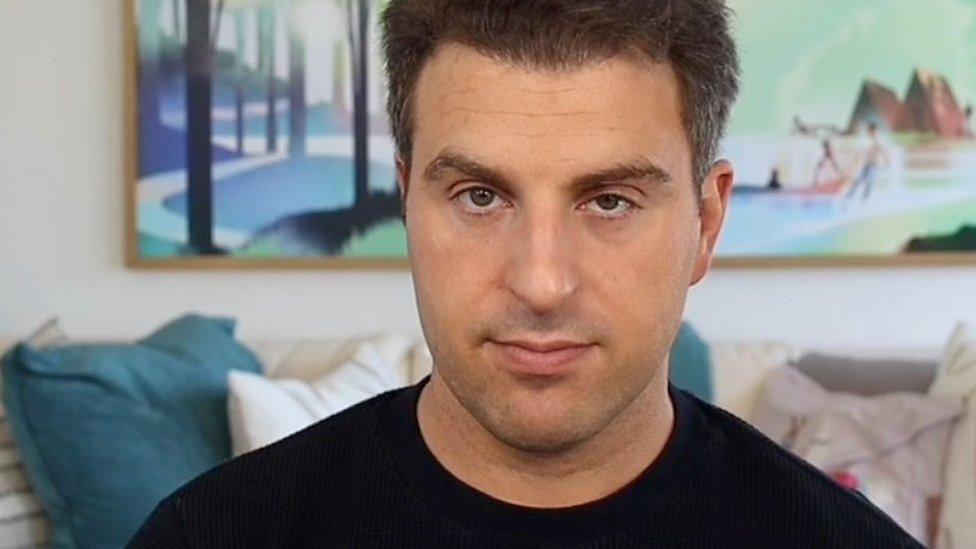CEO Secrets: Don't fire staff for making mistakes
- Published
Blaming workers for problems won't solve them, says Jeff Lawson
Many of the cheery little messages that pop-up on your smartphone telling you your food delivery is on its way or that the Uber car you booked is at your door, are provided by technology firm Twilio.
Since Jeff Lawson founded Twilio in 2008, it has grown to serve 240,000 businesses around the world and now has annual sales of over $2.5bn (£1.8bn). The firm's biggest customers include Deliveroo and Uber.
However, the company experienced a significant setback in 2017, when Uber announced it would be cutting its spending with the firm.
Mr Lawson says the episode taught him a lot as a CEO. It influenced how he would solve his company's problems from that point onwards.
"This was a significant factor for investors. We did disclose it on the earnings call and our stock took a huge hit - I think it fell 40% in one day," he says.
Mr Lawson was tempted to lay blame at the door of the employee whose job it was to persuade Uber to keep up their spending on Twilio's services. Instead, he started a process which he now calls "the blameless post-mortem", to see whether the company's systems were at fault, rather than an individual.

Twilio's biggest customers include food delivery service Deliveroo
"We found out that the real problem was - we had under-staffed sales," says Mr Lawson. "The Uber account had been growing very quickly, but the salesperson did not have enough time to take care of the client properly.
"If we had had a bigger sales team, they would have spoken to Uber much more often and would have picked up on their problems with our service," he adds.
"They were just one account of about thirty that this salesperson had. Uber should have had a dedicated account manager."
Rather than fire the salesperson, however, he took this as the cue to increase his sales staff so none of them was overstretched.
Since this episode, Twilio has grown more than five-fold and employs 5,500 people worldwide. Mr Lawson puts much of that growth down to the company's continued policy of blameless post-mortems when mistakes occur.
"Every employee will make mistakes," he says. "That's unavoidable. As leaders, we have to build systems in which mistakes are non-catastrophic. If you have created a system where one person can ruin the entire company, then you as a leader are at fault."
Related topics
- Published4 August 2021
